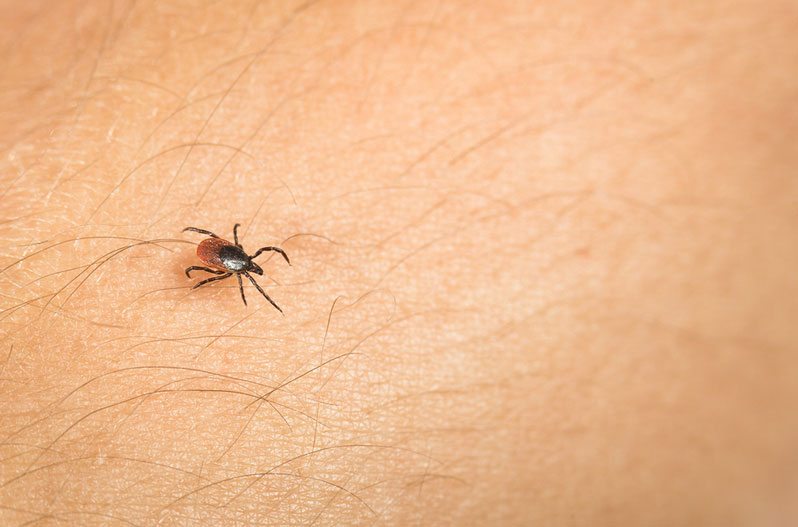Mowing your lawn, playing with your dog, or hiking in the woods. These are just a few of the summertime activities that could put you in contact with ticks. And tick bites are no joke! They can cause a lot of pain and leave you with flu-like symptoms, such as fever, joint pain and nausea. In some of the worst cases, you can even contract lyme disease. Folks believe a lot of myths about tick removal. There are tons of remedies that pop up on a Google search: petroleum jelly, burning them off, freezing them off and nail polish. But beware: some don't work and others have the potential to harm you. If you find one of these pesky critters latching onto your skin, here's how to remove a tick the safe way.
Videos by Wide Open Country
How to safely remove a tick
According to the Centers for Disease Control and Prevention,
the safest tick removal devices are some good household tweezers. It's important to remove the tick as quickly and safely as possible to prevent disease and infection.
First, use fine-tipped tweezers to grasp the tick as close as possible to the skin's surface. Make sure to pull directly upward, using steady, even pressure. Be sure not to twist or jerk the bug, or else the mouth-parts could break off and remain in the skin. Should that happen, remove the tick's mouth from the bite site using the tweezers. If you can't get the mouth out, leave it alone and allow the skin to heal.
After removing the tick, clean the bite area. You can use rubbing alcohol, an iodine scrub, or soap and water to sanitize your skin.
Lastly, you want to thoroughly dispose of the tick. You can submerse it in alcohol, place it in a sealed bag, wrap it tightly in tape, or flush it down the toilet. But whatever you do, do not crush the tick with your fingers.
READ MORE: 5 Natural Sunburn Remedies That Work
How to naturally repel ticks
Now that you know how to safely remove a tick, it's also helpful to know how to prevent getting them in the first place.
Ticks operate mostly by using their sense of smell. Their front legs have a sensory organ called the "Haller's organ," which help them detect smell, temperature, movement and carbon dioxide. This is how they know when you're coming and when to attack!
But the good news is, they are not attracted to certain oils and herbs. You can dab on some oils to mask your natural scent and repel the ticks.
Lemon
Ticks don't like citrusy scents. You can repel them by making a lemon spray.
- Boil two cups of water, then add lemon slices.
- Let the lemon water simmer for an hour.
- Strain the fruit out, then pour the lemon water into a spray bottle.
- Squirt the lemon spray on your skin before going outside.
Rose Geranium Oil
Rose geranium oil has been found to ward off the pesky little parasites. And a little bit can go a long way. Dab a drop of rose geranium oil on your wrists, behind your knees and on the back of your neck to do the trick.
Whatever remedy you choose, your best line of defense in preventing tick-borne illness is to check yourself from head to toe after spending time outdoors.




